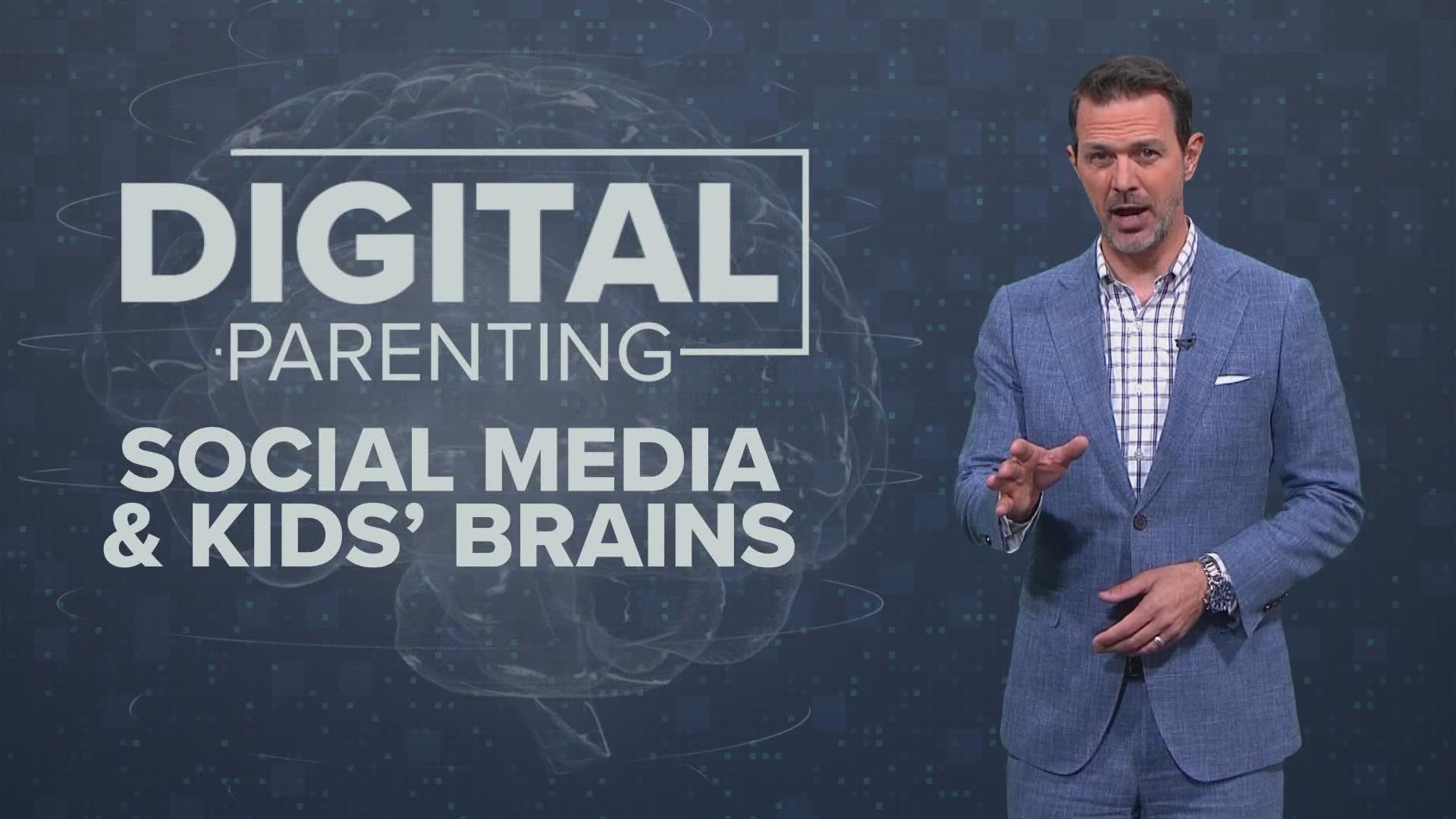DALLAS — Each Sunday afternoon, my phone sends me a notification of my screen time usage each week. And each Sunday afternoon I’m aghast at just how much I’m using my phone.
Even worse, the stats are broken down by app. Twitter. Instagram. TikTok. The numbers are staggering.
Thanks, Apple.
I first learned of the addictive nature of devices and social media while watching the documentary The Social Dilemma. It’s filled with interviews and insight into how social networks are designed to take advantage of the way our brains work in order to get us online early and often, and to keep us there as long as possible.
Given how addictive these social networks to be for me, a grown adult who supposedly possesses impulse control, imagine how difficult it is for my kids?
“I think it’s something that can feel really scary, overwhelming - 'What do I do? What do I not do?' 'Am I ruining my child by letting them use screens?'" says Julie Fratantoni, Ph.D, a research scientist at The University of Texas at Dallas’ Center for Brain Health.
Watch our full conversation with Fratantoni:
The statistics are enough to scare any parent. A study by Common Sense Media found that between 2015-2021 overall screen time usage for teens went up almost 30%.
And when it came to their use of social media, 36% of teens told a Pew Research survey they spent too much time on social apps. 54% said it would be difficult to give those apps up.
As a parent, that feels a lot like addiction to me.
“Is there a new notification?” Dr. Fratantoni asks. “Did I get a new like do I have a new friend request? How many views do my video get? That's it's kind of this yeah, this repetitive behavior where we're kind of waiting to see and then, like you mentioned, get that dopamine hit. And so that's a reinforced behavior then that can just become habit.”
Dr. Fratantoni says our brains don’t reach full development until around age 25. Which means pediatric brains - including teenagers’ - are still developing in ways that can make them even more susceptible to the lure of social media networks. That never-ending scroll of information, the social rewards of likes and views, and the ensuing hit of dopamine those interactions provide. There’s a reward functionality that has us coming back for more. But it can come with a cost.
She tells parents to be on the lookout for:
- A decreased attention span - at home, school, or both.
- Lack of focus
- An inability to sleep
- Difficulty with in-person interactions
- A desire to spend time on social media above everything else - especially physical activity
One concern about the ever-present devices and constant stream of options is the effect on boredom. Dr. Fratantoni says it’s especially essential for kids’ brains, as it allows them time to rest, recharge, and learn creativity and problem solving.
But all hope is not lost. Luckily, just as bad habits can be learned, so can good ones.
“One of the beautiful things about a pediatric brain, or children, is that there is incredible neuroplasticity. If you have wired a bad habit, that you can rewire a new one. And just simply by reinforcing that new behavior,” she says.
So parents, if you notice your kid spending too much time scrolling instagram or talking TikTok or snapping on Snapchat, there’s still time to build healthy relationships with our devices and our social media networks.
“Just knowing that it’s not all good,” Dr. Fratantoni says, “it’s not all bad, there is a happy medium, it just takes a little bit of effort to figure out what that is for each family.”
RESOURCES:

